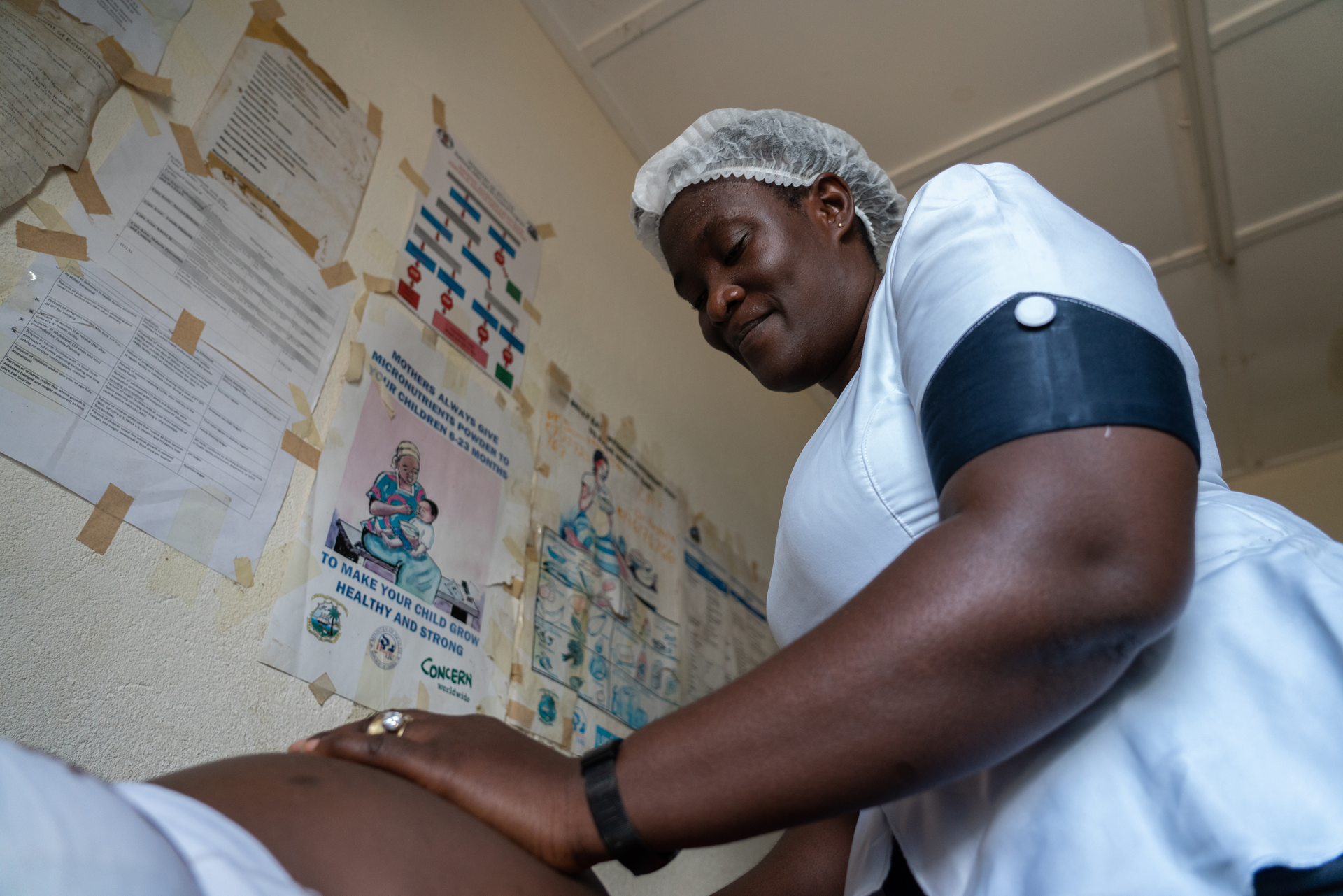Every mother wants the same thing after giving birth: to hear their baby cry, proof that their newborn has taken their first, lifegiving breath.
Martha, a young mother in rural Grand Bassa, Liberia, did not hear a wail: Her tiny boy was limp, blue and not breathing. Instead, she heard midwife Roseline Williams move quickly, bringing supplies and beginning actions to resuscitate her newborn son. Then — a cry: “I was happy when I heard the baby,” says Martha. “I am so very grateful to clinic staff for enabling me to take my baby home alive.”
That Martha’s baby began to breathe was no accident: The Compound #3 health center where she was receiving care is one of six clinics participating in Americares maternal health programs. Williams and 26 other supervisors and health workers received in-person training on safe birth, and three clinics receive monthly mentoring visits by Americares staff, a full set of neonatal resuscitation equipment, a mannequin for routine skills practice and other essential newborn supplies. This combination of training, mentoring and supplies directly addresses Liberia’s high infant mortality rate: Nearly 47 out of every 1,000 babies born in Liberia this year will die before their first birthday, among the worst mortality rates in the world. In six months, Americares training boosted the quality-of-care rating at the clinics from a 27 percent rating to 83 percent, on average.
“Because of Americares training, we were able to make that baby survive,” says Williams. “We used everything supplied by Americares.” As well as skills, that included a kit with equipment and a firm bed, designed for newborn resuscitation. In just eight months, nine babies were resuscitated; one infant could not be saved.
Americares has been working in Liberia since 2015, providing medicine, supplies and other resources and technical support to rural health centers, with a focus on maternal and child health. “This comprehensive support improves women’s health overall,” says Saman Nizami, Americares senior director of Africa and Middle East programs, “and saving lives builds trust in the community.”
“Everybody has the right to give birth, and every child has the right to live,” says Williams. “When [there are] skilled people in the facility, it will be better for us all the time.”


